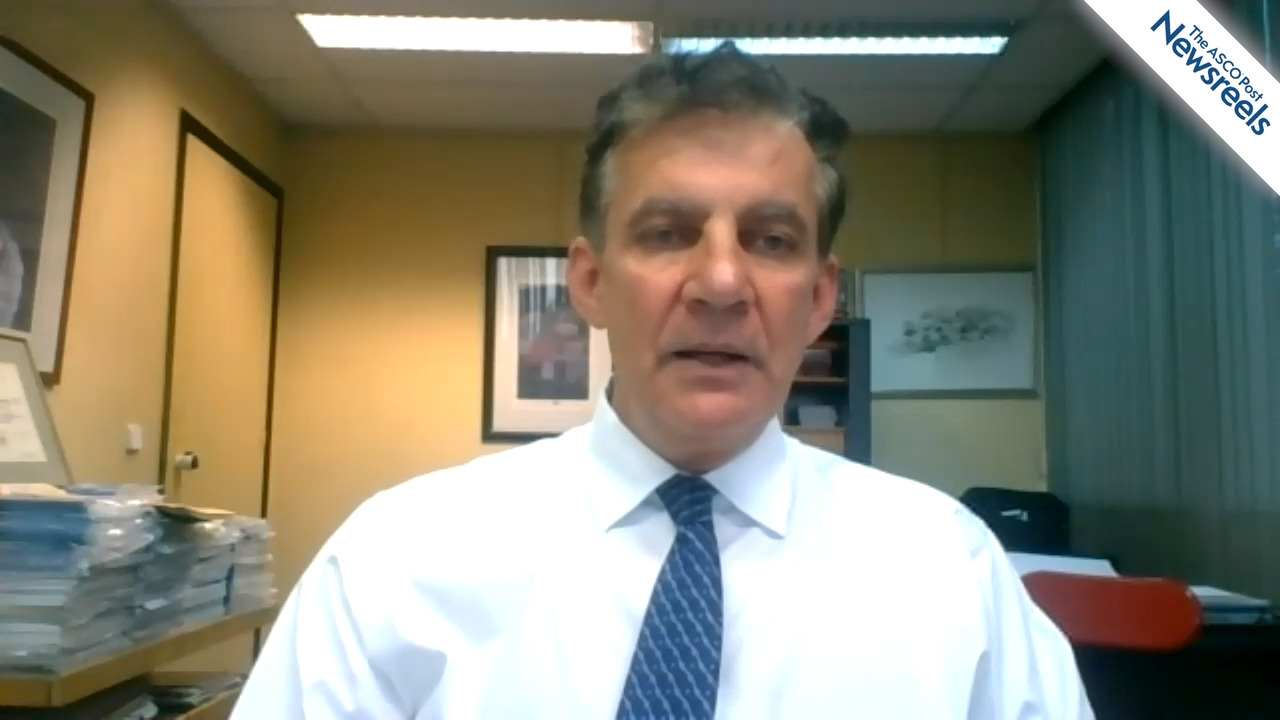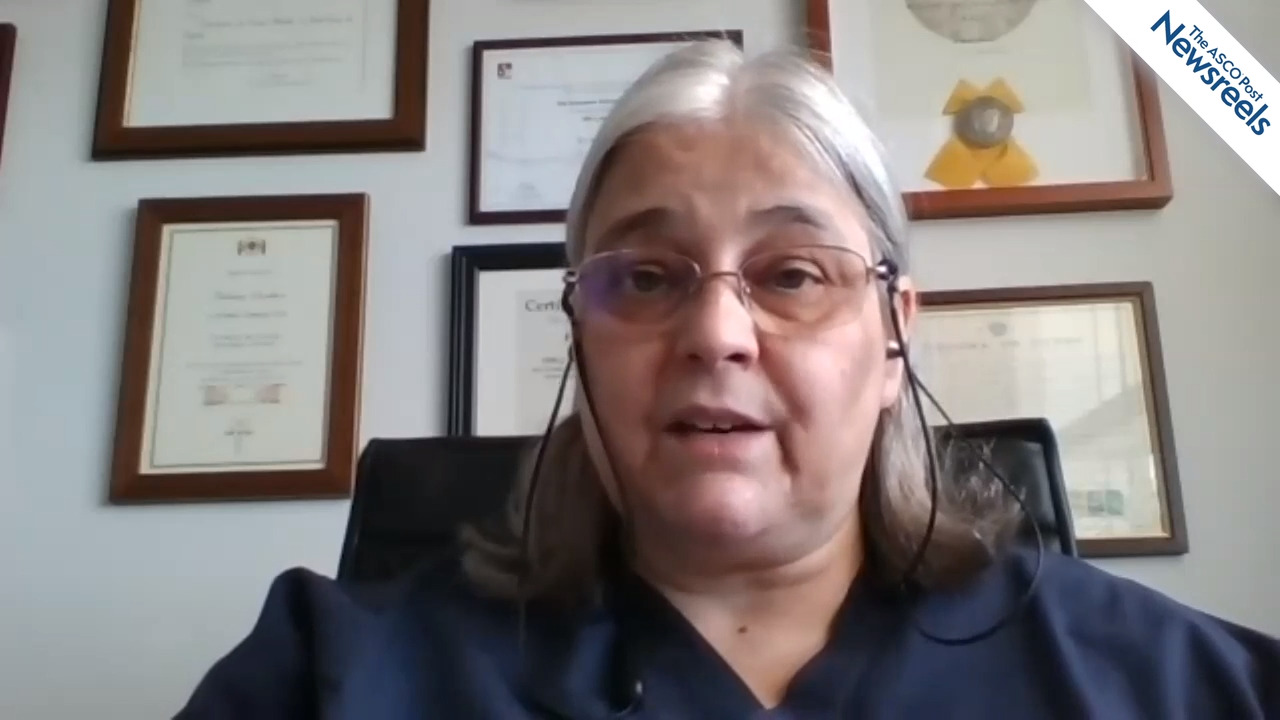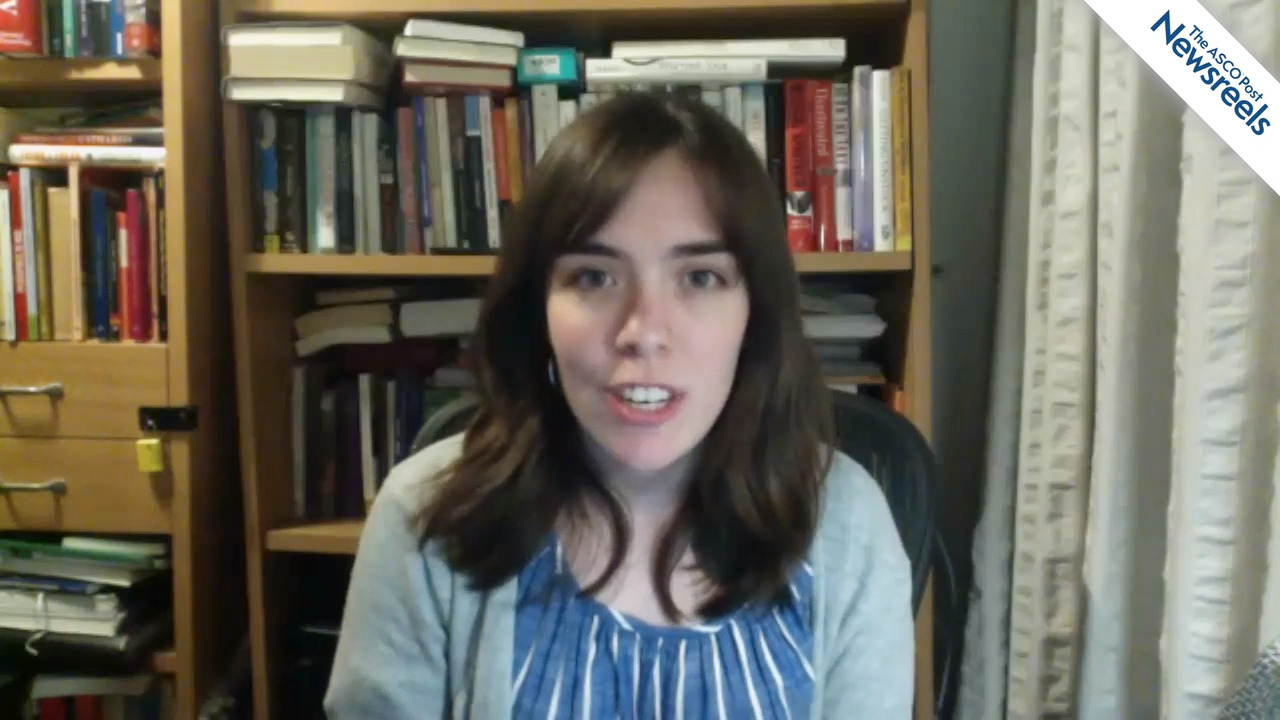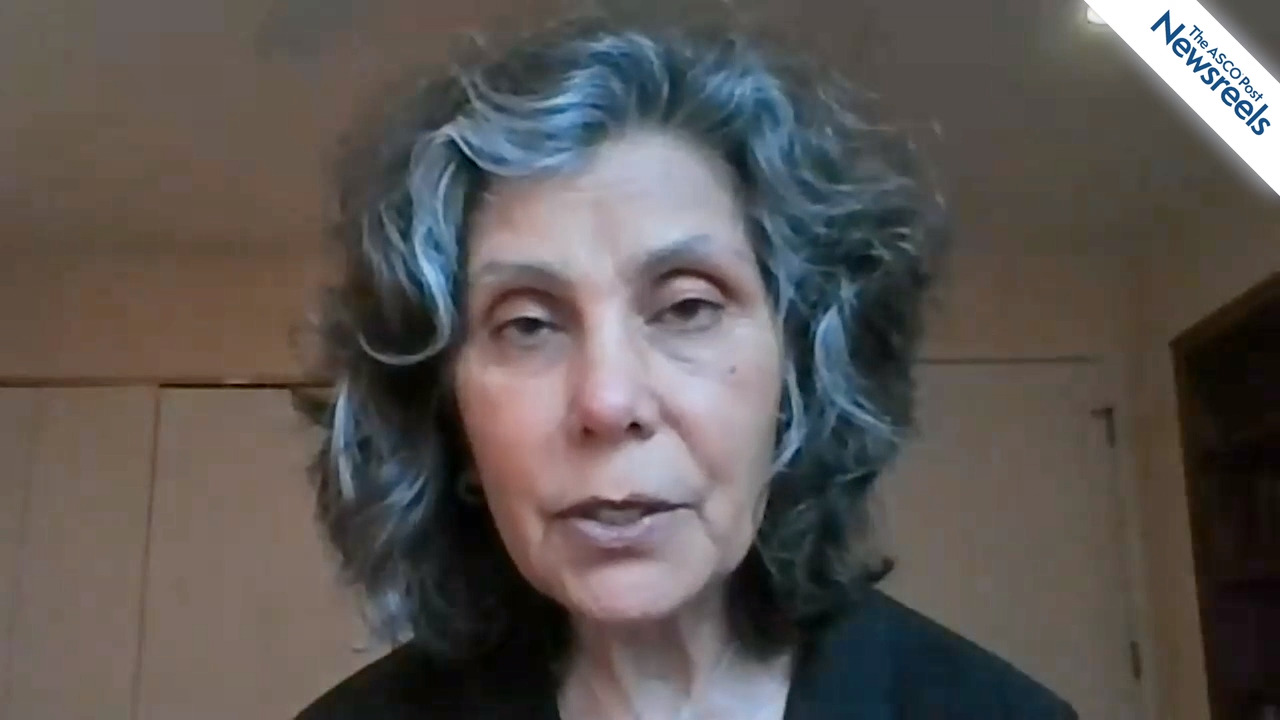Egbert F. Smit, MD, PhD, on NSCLC: Treatment With Fam-trastuzumab Deruxtecan
ASCO20 Virtual Scientific Program
Egbert F. Smit, MD, PhD, of the Netherlands Cancer Institute, discusses interim results from the DESTINY-Lung01 trial of fam-trastuzumab deruxtecan in patients with HER2-mutated metastatic non–small cell lung cancer. The data show clinical activity with high overall response rates and durable responses (Abstract 9504).
The ASCO Post Staff
Daniel P. Petrylak, MD, of the Yale Cancer Center, discusses early data on ARV-110, an androgen receptor proteolysis–targeting chimera degrader, demonstrating antitumor activity in metastatic castration-resistant prostate cancer after treatment with enzalutamide and abiraterone (Abstract 3500).
The ASCO Post Staff
Meletios A. Dimopoulos, MD, of the University of Athens, discusses phase III results from the BOSTON trial, which showed that once-weekly selinexor, bortezomib, and dexamethasone significantly improved progression-free survival and overall response rates compared with twice-weekly bortezomib and dexamethasone in patients previously treated for multiple myeloma (Abstract 8501).
The ASCO Post Staff
Fatima Cardoso, MD, of Lisbon’s Champalimaud Cancer Center, discusses the long-term results of MINDACT, a large prospective trial showing the clinical utility of the 70-gene signature MammaPrint for adjuvant chemotherapy decision-making. The primary distant metastasis–free survival endpoint at 5 years continued to be met in chemotherapy-untreated women with clinical-high/genomic-low risk disease (Abstract 506).
The ASCO Post Staff
Professor Lourdes Gil Deza, of the Instituto Oncológico Henry Moore, Buenos Aires, discusses her findings on the shortcomings of medical training when it comes to treating transgender patients, and the need to deepen clinical and communication skills to assist this population (Abstract 11002).
The ASCO Post Staff
Seema A. Khan, MD, MPH, of the Lynn Sage Comprehensive Breast Center, discusses phase III trial results showing that in newly diagnosed metastatic stage IV breast cancer, locoregional treatment of the primary tumor did not offer a greater survival benefit than systemic therapy (Abstract LBA2).





